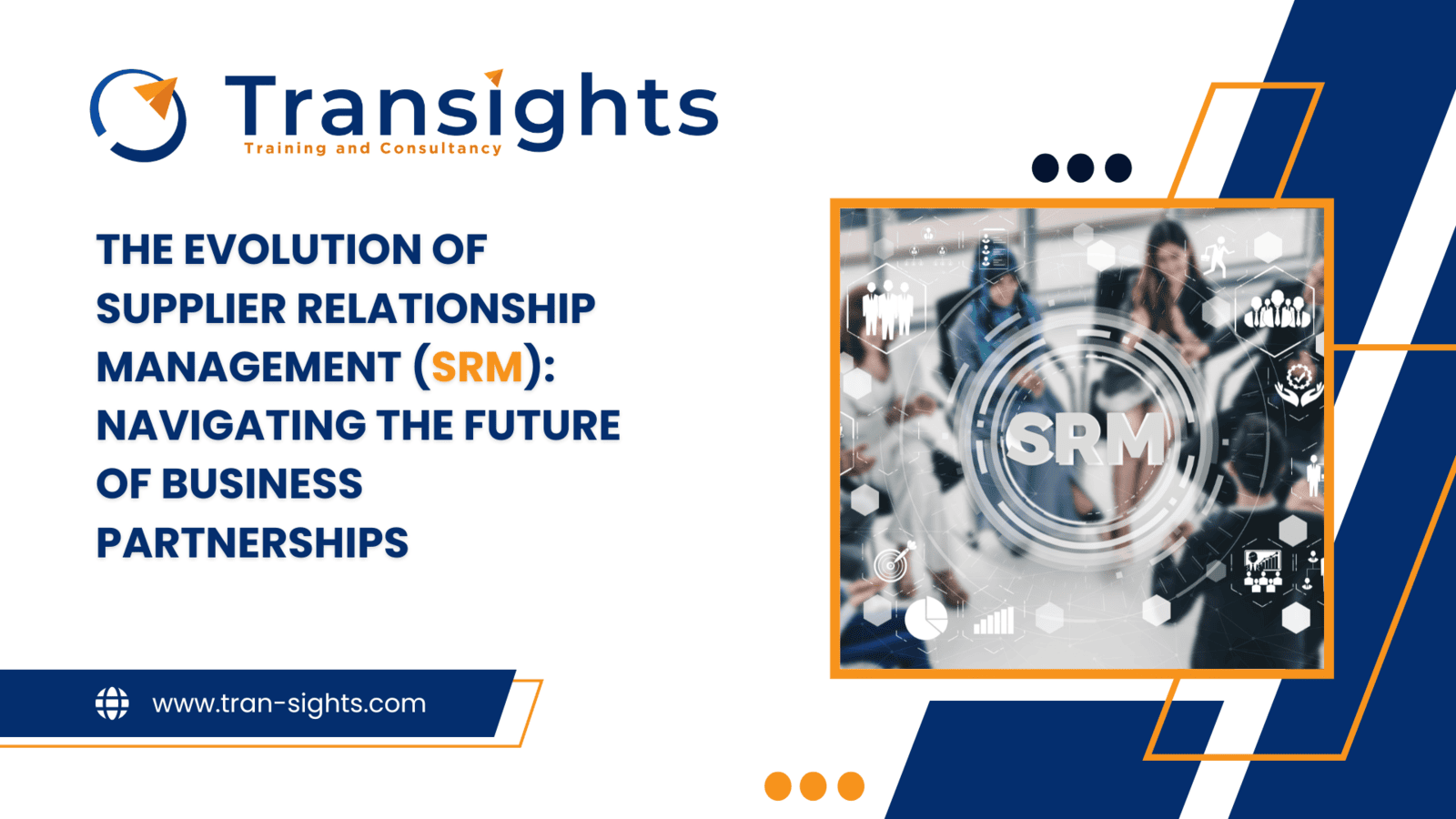What is Supplier Relationship Management (SRM)?
Supplier Relationship Management is a strategic approach to managing interactions with an organization’s suppliers. The aim is to establish and maintain strong, value-driven partnerships that contribute to both business success and supplier growth. Instead of focusing on short-term contracts or cost minimization, SRM seeks to create an environment where collaboration, trust, and shared goals are at the core of every interaction. By fostering these long-term relationships, businesses can enjoy benefits like enhanced quality, increased innovation, risk management, and improved supply chain efficiency.
The Current Landscape: Innovations Driving SRM
Artificial Intelligence and Data-Driven Decision Making: The integration of AI and machine learning into SRM has revolutionized the way businesses assess and manage supplier performance. AI-powered tools allow for deeper insights into supplier behaviors, predicting trends, forecasting demand, and identifying risks before they arise. By leveraging data analytics, companies can move away from reactive strategies and adopt a proactive approach to supplier management, leading to optimized procurement decisions.
Blockchain Technology: Building Transparency and Trust: One of the most groundbreaking changes in SRM is the implementation of blockchain technology. Known for its transparency, security, and decentralization, blockchain is enabling businesses to create trust-filled, transparent relationships with their suppliers. It guarantees that every transaction and process is accurately recorded, ensuring product quality, traceability, and eliminating fraud—making the entire supply chain more reliable and resilient.
Sustainability and Ethical Sourcing as Core Values: Sustainability is no longer a trend but a necessity for organizations striving to stay competitive. SRM is being redefined by an increasing focus on working with suppliers who share a commitment to environmental, social, and governance (ESG) principles. Consumers are demanding eco-friendly products, and businesses are now evaluating their suppliers based on ethical sourcing and sustainability practices. By prioritizing these values, companies are not only reducing their environmental footprint but also building stronger brand reputations in a conscious consumer market.
Collaboration Over Transaction: Modern SRM emphasizes collaboration rather than simple transaction management. Companies are now working hand-in-hand with suppliers, co-developing new solutions, improving product quality, and driving innovation. This collaborative approach enhances the ability to solve problems together and generates long-term value for both parties. By investing in supplier development programs, businesses create an ecosystem where both the supplier and buyer can thrive, leading to a more resilient and agile supply chain.
Digital Transformation: Cloud-Based SRM Platforms: Cloud-based SRM platforms are becoming essential tools for companies seeking efficiency, real-time collaboration, and seamless communication with suppliers. These platforms automate procurement processes, provide real-time performance tracking, and ensure compliance, reducing manual intervention and errors. The ability to integrate with other business systems enhances the visibility and flow of information, ensuring that suppliers and businesses are aligned on goals, timelines, and expectations.
Why SRM is Crucial for Business Success Today
Cost Optimization and Competitive Advantage: A well-executed SRM strategy allows companies to leverage their relationships with suppliers for better pricing, optimized purchasing processes, and reduced operational costs. Additionally, strategic supplier partnerships open doors for exclusive deals, early access to innovations, and value-added services, all of which help companies gain a competitive edge in the market.
Fostering Innovation and Quality Improvement: With strong supplier relationships, businesses can collaborate more effectively on product innovation and quality improvements. This cooperation leads to the development of cutting-edge products, higher quality standards, and better customer experiences. Suppliers are no longer just vendors; they become partners in the company’s quest to meet consumer demand and stay ahead of the competition.
Proactive Risk Management: The volatility of global supply chains means that companies must be prepared to handle disruptions. SRM facilitates better risk management by encouraging close communication and collaboration with suppliers. By diversifying supplier bases and establishing contingency plans, companies can mitigate the risk of supply shortages, delays, or other disruptions, ensuring business continuity during unforeseen events.
Long-Term Strategic Partnerships: SRM transforms procurement from a transactional activity to a long-term partnership-building exercise. Companies with strong SRM frameworks are better positioned to build lasting relationships that foster shared growth, access to new markets, and innovation. These partnerships provide a foundation for sustainable success, with both the company and its suppliers benefiting from mutual growth.
Impact of SRM in Action: Success Stories
Automotive Sector: A leading automotive company leveraged SRM strategies to integrate predictive analytics, which helped them optimize their global supply chain. The results?
Reduced delays, cost reductions, and improved overall product quality.
Consumer Electronics: A major electronics brand used blockchain technology within its SRM process to track and authenticate components from its suppliers, reducing counterfeiting risks and strengthening its relationship with trusted suppliers. This led to smoother operations and higher trust levels in the supply chain.
Retail Industry: A large retail chain collaborated closely with suppliers to integrate sustainable practices into their supply chain. The partnership resulted in reduced carbon emissions and a positive impact on the environment, which was well-received by eco-conscious customers and increased brand loyalty.
The Future of SRM: What's Next?
As businesses continue to navigate the complexities of global supply chains, SRM will undoubtedly evolve further. Emerging trends such as 5G technology, advanced robotics, and IoT will continue to shape how companies engage with their suppliers. The future of SRM will be deeply embedded in the digital transformation of organizations, where real-time data, automation, and AI-driven insights will be the norm.
Conclusion
Supplier Relationship Management (SRM) is no longer just about negotiating contracts and managing supplier interactions. Today, it is a strategic business function that drives innovation, sustainability, and long-term success. By embracing new technologies and focusing on collaboration, transparency, and shared growth, companies can unlock new levels of performance and resilience in their supply chains.
As SRM continues to evolve, businesses that invest in building strong, forward-thinking relationships with their suppliers will be well-positioned to succeed in the competitive global marketplace. Embracing SRM as a core business strategy is no longer optional—it’s essential for thriving in the modern economy.


